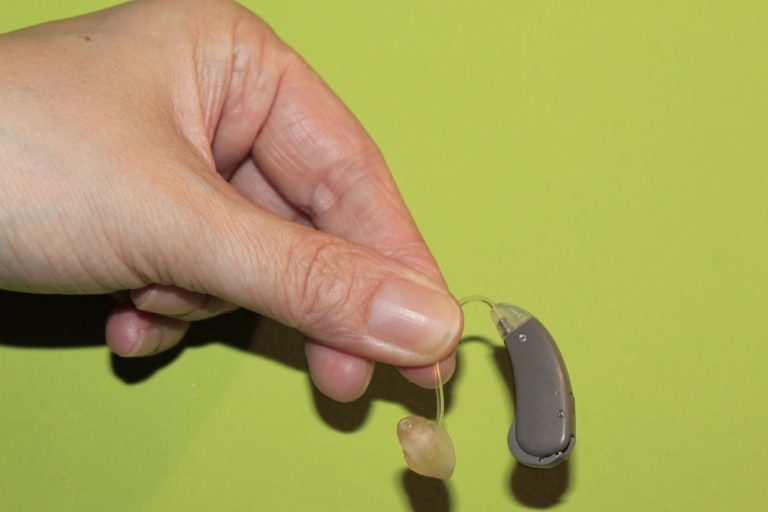Hearing loss that sets in gradually as you age is called presbycusis. There are 3 main types of hearing loss, namely conductive, sensorineural, and mixed. Aging and constantly being exposed to loud noises can lead to hearing loss. Other factors, such as ear malfunction, ear wax production, and others, may also lead to hearing loss issues in some individuals.
If you or a loved one is facing hearing loss, it may be a good idea to contact HearCanada. Hearing often does not come back, but there are ways to improve and manage symptoms. Keep reading to learn more about what causes it and what you can do to reduce the risk.
Story Stages
What Are the Three Hearing Loss Types?
- Damage to the outer or middle ear leads to conductive hearing loss
- Sensorineural hearing loss occurs due to inner ear issues
- Mixed hearing loss can be considered a combination of both of the above
Common Hearing Loss Symptoms
- Hearing muffled speech and other sounds
- Difficulty understanding and differentiating between words, especially in a crowded/noisy area
- Difficulty hearing consonants
- Frequently asking others to speak loudly, clearly, or slowly
- Turning up the TV or radio volume too high
- Avoiding social settings
- Getting annoyed by background noise
- Ear ringing or tinnitus
What Leads to Hearing Loss?
To understand how hearing loss occurs, you need to familiarize yourself with the human ear’s function:
How We Hear
The human ear has three components known as the inner ear, middle ear, and outer ear. Waves of sound travel via the outer ear and make the eardrum vibrate. The eardrum and three small bones present inside the middle ear amplify the vibrations, which then enter the inner ear.
This region has a snail-shaped part called the cochlea and is filled up with fluid. The vibrations pass through the cochlea, which has nerve cell endings attached to tons of tiny hair. These convert sound vibrations into electrical signals, which are then transmitted to the human brain. The brain interprets these signals and turns them into sound.
How Hearing Loss Occurs
- Exposure to loud noises and aging can cause wear and tear of nerve cells/hair endings in the cochlea. The inability to send sound signals to the brain prevents the brain from receiving electrical signals, which leads to hearing loss. Higher-pitched tones sound muffled, and harder words become difficult to grasp if background noise is present.
- Earwax buildup can block the ear canal and prevent sound waves from reaching the cochlea. Earwax removal can enable the affected individual to hear again.
- Abnormal bone growth, tumors, and ear infections in the middle or outer ear can also lead to hearing loss.
- A ruptured eardrum or tympanic membrane perforation can occur due to sudden pressure changes, loud blasts, eardrum perforation with an object, or an infection that causes the eardrum to burst.
Risk Factors of Hearing Loss
Loud Noises
Being constantly around loud noises can damage the inner ear. These noises can be a short gunshot blast or constant loud noises like those in a factory, farm, or construction site. Being exposed to explosive sounds, such as jet engines or firearms, can lead to permanent loss of hearing. Other harsh noises include loud music, carpentry, snowmobiling, and motorcycling.
Age and Genetics
Every individual’s organs suffer wear and tear over time. The inner ear is likely to get damaged as you age. Hereditary factors or genes that make the ears more susceptible to hearing loss will get damaged faster due to aging and loud noises.
Medication And Illness
Some medications, such as sildenafil or Viagra, antibiotic gentamicin, and cancer medications, can lead to inner ear damage. High doses of aspirin and other painkillers, loop diuretics, and antimalarial drugs are also known to affect hearing temporarily. They can either cause hearing loss or tinnitus. Some conditions like meningitis or those that cause a high fever can also lead to cochlea damage.
How to Prevent Hearing Loss
Get Your Ears Tested
If you live or work at a place that causes you to be exposed to loud noises, then it may be a good idea to get regular hearing tests. If you are already facing hearing loss, seek medical help immediately. Follow your doctor’s advice to prevent symptoms from worsening.
Protect Your Ears
Keeping away from loud noises that can damage the cochlea or inner ear is your best bet. Use glycerin-filled earmuffs or plastic earplugs to protect your ears in a noisy workplace.
Avoid Noisy Activities
Activities like jet skiing, hunting, attending rock concerts, or riding a snowmobile can damage your ears over time. The best way to protect your ears is to take breaks and wear hearing protectors. Never listen to the radio or watch TV at a high volume. Make sure to avoid places with unbearable noise.
Endnote
Hearing loss can be traumatizing, especially because it sets in slowly. The affected individual starts to feel frustrated, and they realize they can slowly hear even less than before. Seek medical help immediately if you or a loved one is showing symptoms. Be kind and considerate to those facing hearing loss, as this condition can be pretty frustrating.
